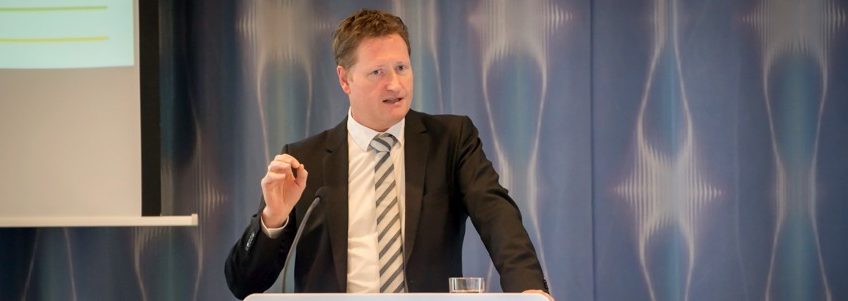NIP General Assembly provides information on ongoing and completed projects in phase 2 of the funding programme 142 million euros in funding for research and development 123 million euros approved for procurements
Berlin, 5 December 2018 – Some 400 participants will be informed about current projects, results of completed projects and EU-funded projects in Germany at the General Assembly of the National Innovation Programme Hydrogen and Fuel Cell Technology NIP 2, on 5 and 6 December 2018 in Berlin. High-calibre keynote speeches and presentations, panel discussions and expert forums on political framework conditions and general technical developments in the hydrogen and fuel cell sector offer stakeholders from industry, research and politics a forum for networking and professional exchange.
In NIP 2, the Federal Ministry of Transport and Digital Infrastructure (BMVI – Bundesministerium für Verkehr und digitale Infrastruktur) and the Federal Ministry for Economic Affairs and Energy (BMWi – Bundesministerium für Wirtschaft und Energie) are investing 94 million euros and 48 million euros, respectively, into the research and development of the technology (since 1 January 2017). The procurement of zero-emission products based on hydrogen and fuel cell technology is being supported by the two federal ministries with funds of 58 million euros (BMVI) and 65 million euros (BMWi), respectively. The BMWi’s procurement support has focused on KfW loan commitments for around 5,000 stationary fuel cell systems for power and heat generation in single-family homes as part of the technology introduction programme. The procurement support provided by the BMVI has been currently used, among other things, to procure 223 fuel cell vehicles and set up 20 hydrogen refuelling stations to help ensure that emission-free mobility with hydrogen becomes more attractive.
The funding programme is coordinated by NOW GmbH. In the opening speech of the NIP General Assembly, Dr. Klaus Bonhoff, Managing Director and Speaker of NOW, explained that hydrogen technology is a technology for the transition of the energy sector – the benefits of which extend beyond the transport sector. Bonhoff: “Against the backdrop of the integration of renewable energy sources in all areas, hydrogen technology is systemically relevant and decisive for sector coupling.” The previous five calls for funding support aimed at market activation in NIP 2 were successful and strongly in demand. The real challenge, however, lies ahead of us. Bonhoff: “NIP 2 and other programmes for clean mobility have laid a good foundation. Yet if we consider the CO2 target for 2030, we must now think in terms of much larger vehicle volumes. It is important that the framework for these quantitative ranges is now swiftly established and put in place.”
The NIP General Assembly regularly provides a status report on the activities of the National Innovation Programme Hydrogen and Fuel Cell Technology. More information about the programme and the projects can be found here.


